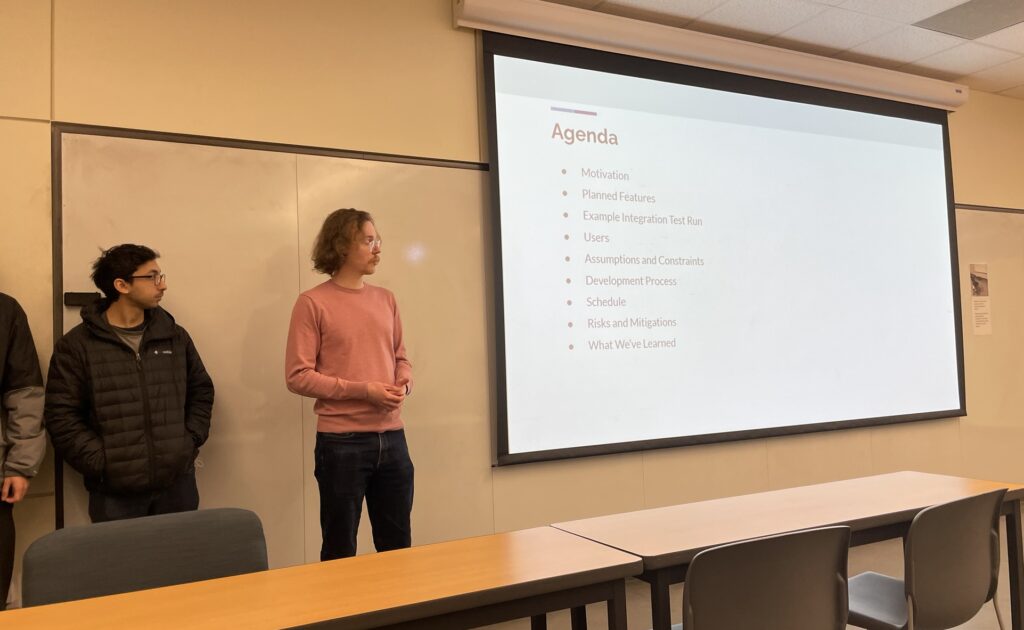At Ranger EV, we’re on a mission to revolutionize EV travel by enabling Guests and Hosts to seamlessly share energy to power their adventures sustainably. In working towards this goal, we collaborate with talented individuals who share our vision. Today, we’re thrilled to highlight the incredible work being done by our Portland State University CS capstone team.
Accelerating Innovation: PSU CS Capstone Team Works on EV Charger Simulator

Yesterday, our PSU CS Capstone Team presented their mid-project review, showcasing the progress they’ve made on a critical component of our technology stack: a “digital twin” of our OCPP-connected chargers. This virtual representation of our physical chargers will allow us to rapidly develop and iterate on our core product, the Ranger EV network.
The digital twin being developed by the capstone team will empower us to simulate the behavior and functionalities of our real chargers in a virtual environment. This means we can test new features, optimize performance, and address potential issues without the need for physical hardware. By leveraging this powerful tool, we can accelerate our development process and bring innovative solutions to market faster.
What’s even more exciting is that these simulated chargers will not only replicate the capabilities of our existing chargers but also enable us to explore new possibilities. With the digital twin, we can push the boundaries of what’s achievable and experiment with advanced features that go beyond the current limitations of physical chargers. This opens up a world of opportunities for enhancing the EV charging experience for our Guests and Hosts.
This isn’t the first time we’ve had the privilege of hosting a talented team from PSU. Previously, another capstone team worked on developing mapping and discovery features for our platform. Their contributions have been invaluable in shaping the Ranger EV experience. We’re excited to see how the current team’s work on the charger simulator will further propel our mission forward.
As we continue our journey to revolutionize EV travel, we’re incredibly grateful for the dedication and expertise of our PSU CS capstone team and their instructors at Portland State. Their work on the digital twin is a testament to the power of collaboration and innovation. We can’t wait to see the impact their contributions will have on the future of Ranger EV and the EV charging landscape as a whole.
Stay tuned for more updates on our progress and the exciting developments ahead!



